Best AI tools for< Indexing For Llms >
20 - AI tool Sites
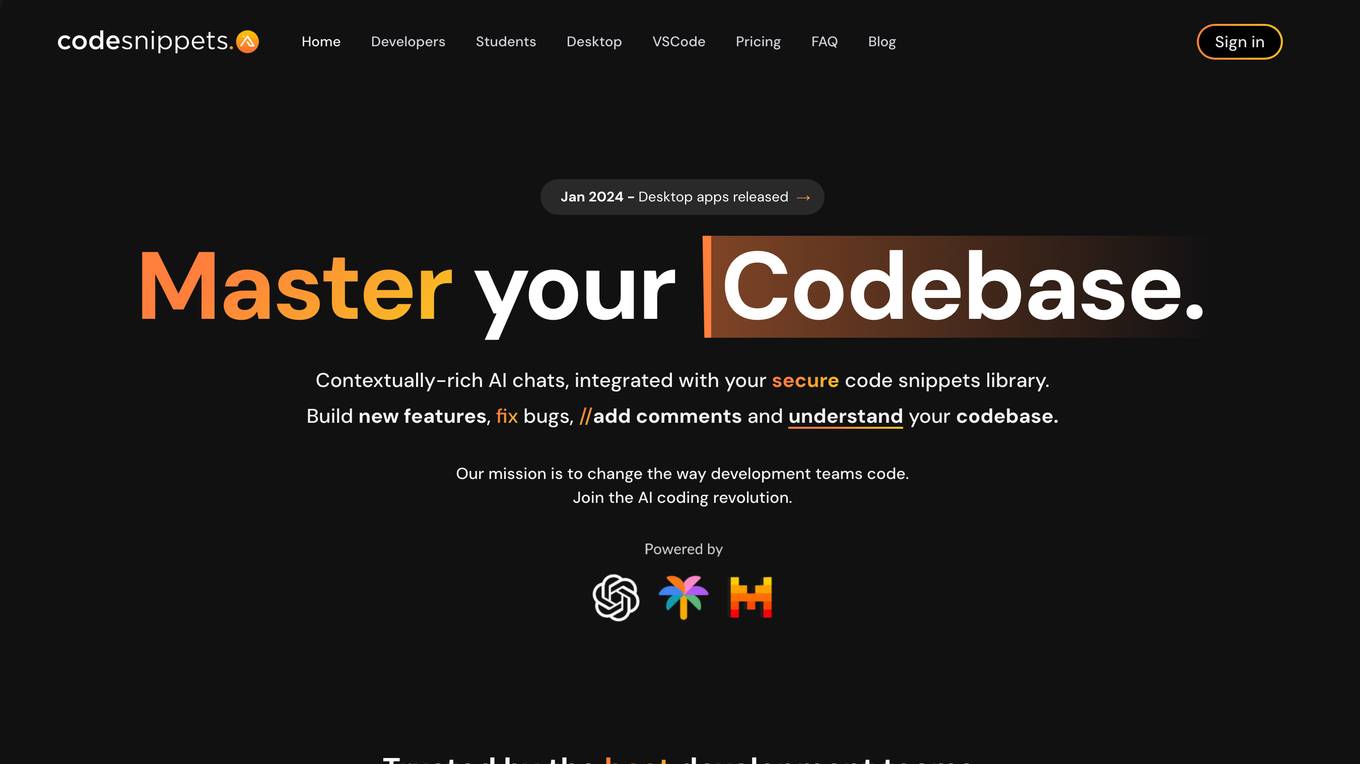
Code Snippets AI
Code Snippets AI is an AI-powered code snippets library for teams. It helps developers master their codebase with contextually-rich AI chats, integrated with a secure code snippets library. Developers can build new features, fix bugs, add comments, and understand their codebase with the help of Code Snippets AI. The tool is trusted by the best development teams and helps developers code smarter than ever. With Code Snippets AI, developers can leverage the power of a codebase aware assistant, helping them write clean, performance optimized code. They can also create documentation, refactor, debug and generate code with full codebase context. This helps developers spend more time creating code and less time debugging errors.
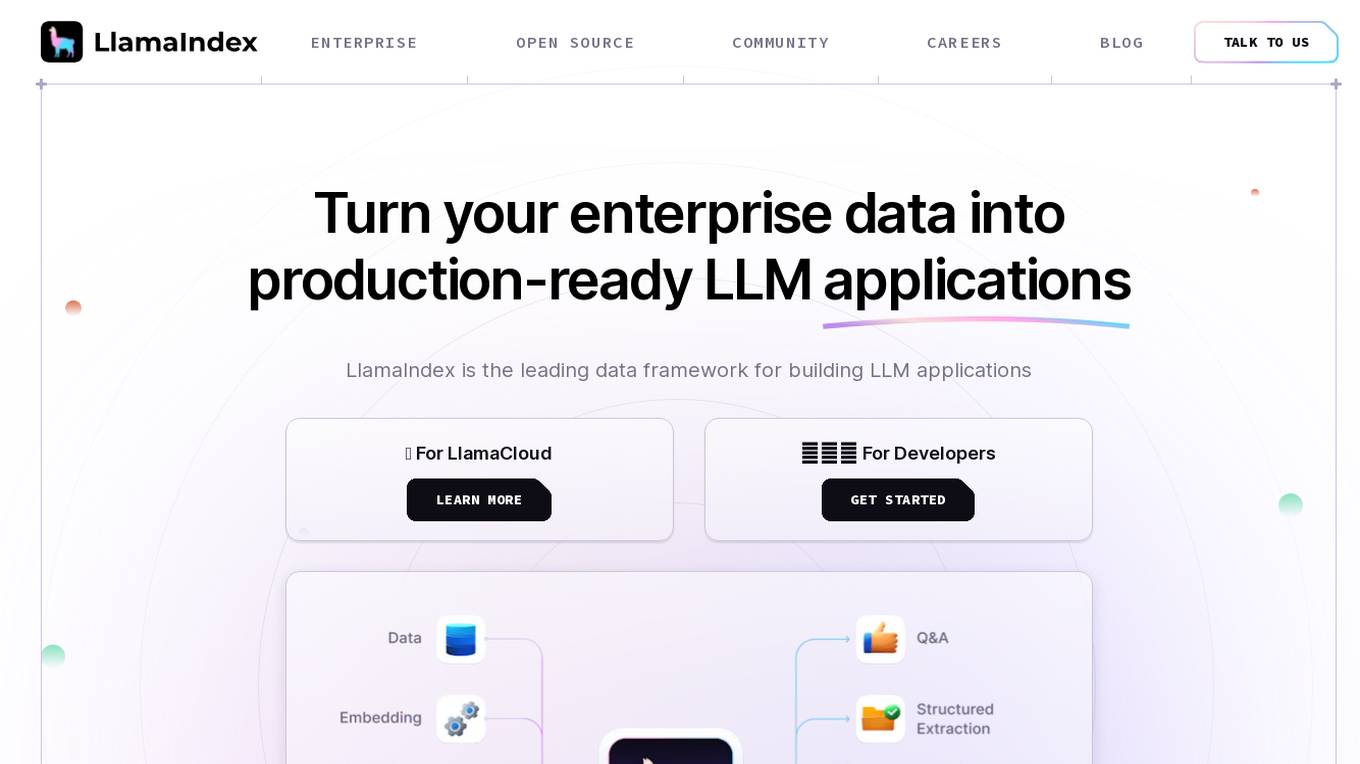
LlamaIndex
LlamaIndex is a leading data framework designed for building LLM (Large Language Model) applications. It allows enterprises to turn their data into production-ready applications by providing functionalities such as loading data from various sources, indexing data, orchestrating workflows, and evaluating application performance. The platform offers extensive documentation, community-contributed resources, and integration options to support developers in creating innovative LLM applications.
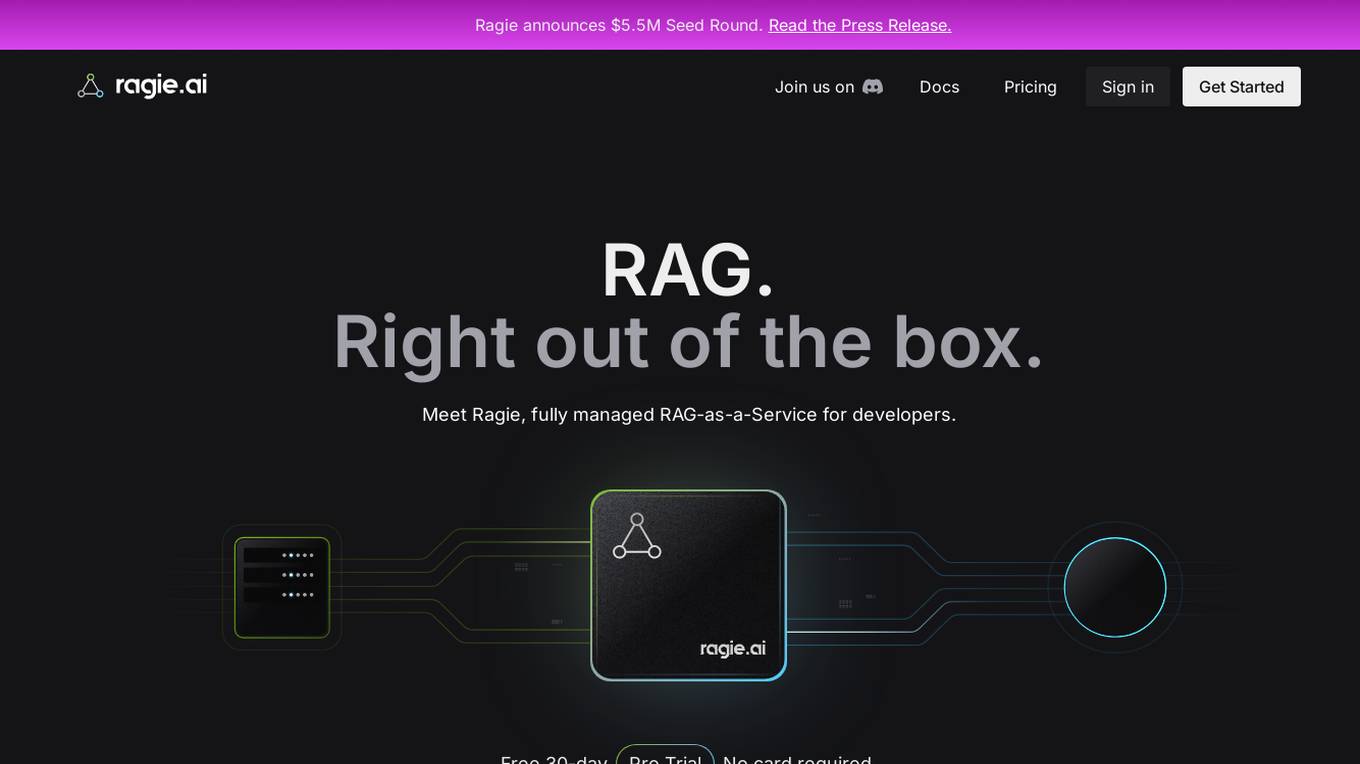
Ragie
Ragie is a fully managed RAG-as-a-Service platform designed for developers. It offers easy-to-use APIs and SDKs to help developers get started quickly, with advanced features like LLM re-ranking, summary index, entity extraction, flexible filtering, and hybrid semantic and keyword search. Ragie allows users to connect directly to popular data sources like Google Drive, Notion, Confluence, and more, ensuring accurate and reliable information delivery. The platform is led by Craft Ventures and offers seamless data connectivity through connectors. Ragie simplifies the process of data ingestion, chunking, indexing, and retrieval, making it a valuable tool for AI applications.

Caibooster
Caibooster is an AI-based Google indexing service that helps users boost their indexing rate and speed in Google search results. It offers different packages for submitting links to Google for indexing, with a high success rate of 60%-80%. The service is safe, professional, and affordable, ensuring that users' data is secured and their links are indexed efficiently. Caibooster continuously updates its indexing system to adapt to Google's changes, making it a reliable solution for anyone struggling with link indexing.

Chatlas
Chatlas is a powerful AI chatbot application designed to revolutionize customer communication on websites. It offers advanced algorithms for indexing website content, customizable conversations, 24/7 availability, and the ability to upload documents and conduct Q&A sessions to train the chatbot. Chatlas aims to enhance customer engagement, streamline support processes, and provide an interactive website experience through intelligent automation.

Keepi
Keepi is a personal knowledge AI tool that operates over WhatsApp, allowing users to effortlessly capture, organize, and retrieve their knowledge. It enables users to forward texts, links, images, and voice messages to Keepi on WhatsApp, where everything is saved instantly. Keepi understands and transcribes voice notes, reads articles, and extracts key information, automatically organizing and indexing knowledge for quick retrieval. Users can ask Keepi anything and receive instant answers based on their saved content, creating a personalized knowledge base accessible within WhatsApp. Keepi simplifies information management and retrieval, enhancing productivity and efficiency in daily tasks.
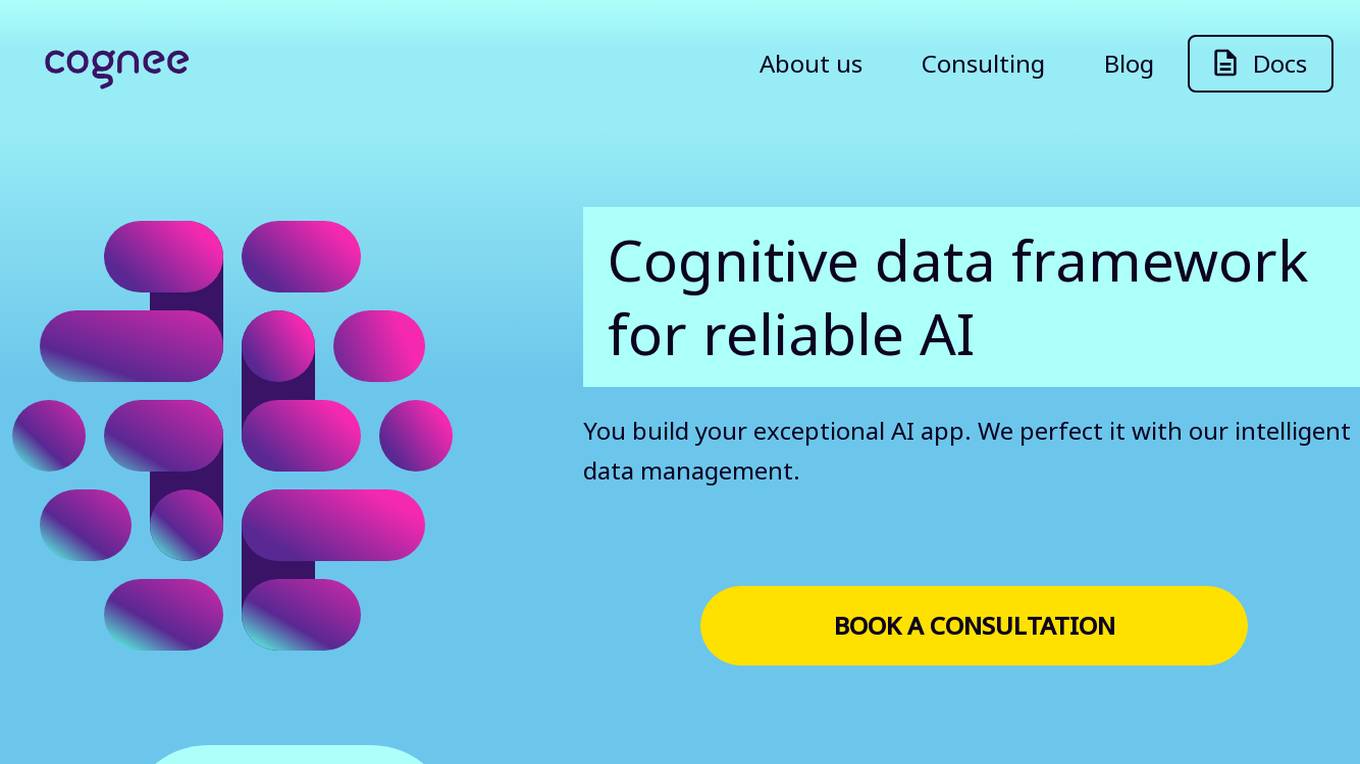
Cognee
Cognee is an AI application that helps users build deterministic AI memory by perfecting exceptional AI apps with intelligent data management. It acts as a semantic memory layer, uncovering hidden connections within data and infusing it with company-specific language and principles. Cognee offers data ingestion and enrichment services, resulting in relevant data retrievals and lower infrastructure costs. The application is suitable for various industries, including customer engagement, EduTech, company onboarding, recruitment, marketing, and tourism.
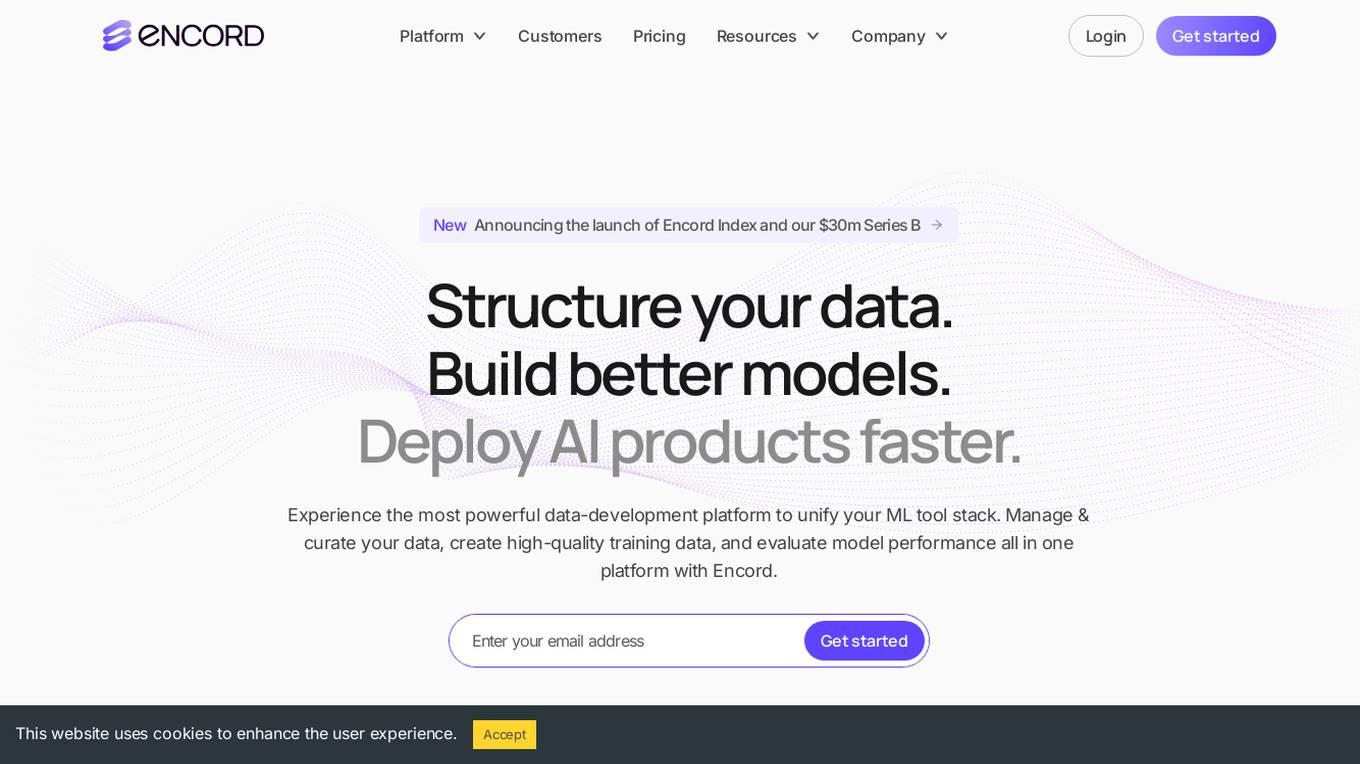
Encord
Encord is a leading data development platform designed for computer vision and multimodal AI teams. It offers a comprehensive suite of tools to manage, clean, and curate data, streamline labeling and workflow management, and evaluate AI model performance. With features like data indexing, annotation, and active model evaluation, Encord empowers users to accelerate their AI data workflows and build robust models efficiently.
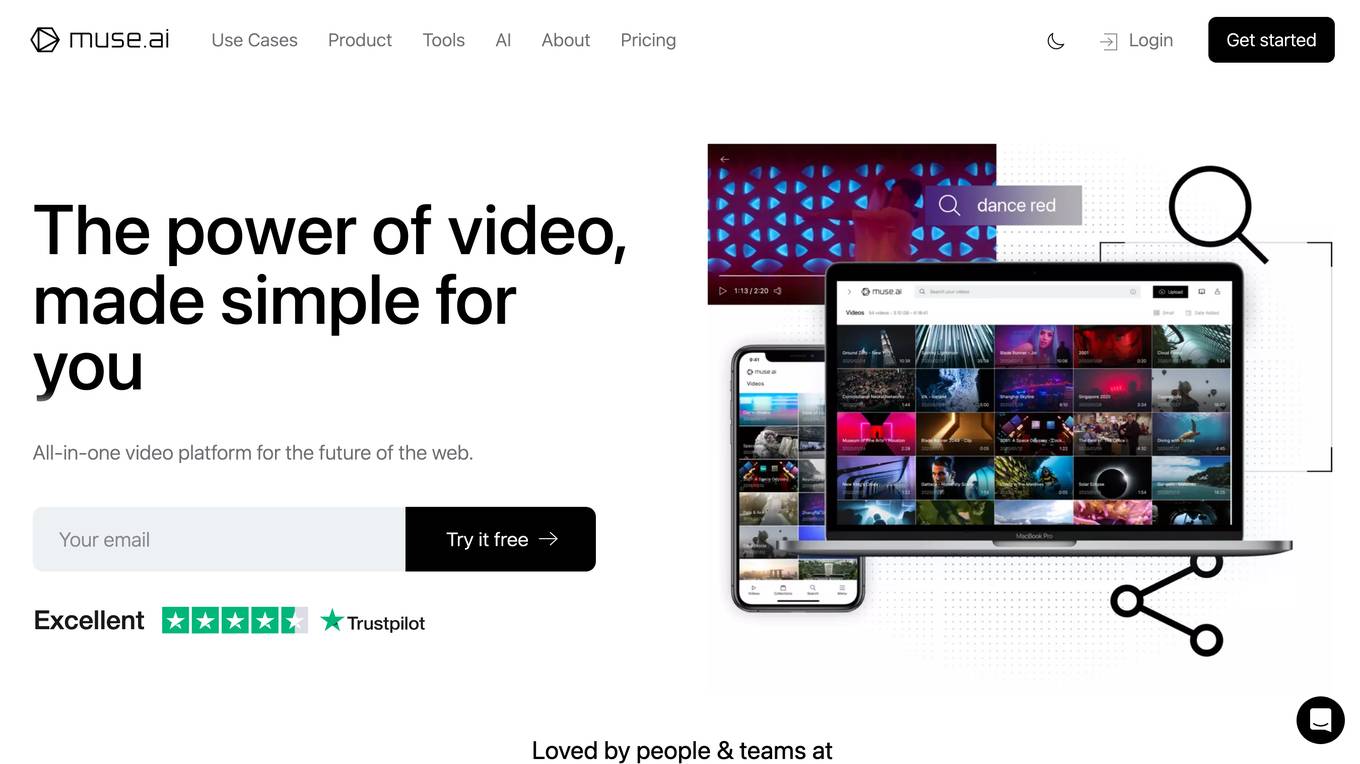
Muse.ai
Muse.ai is an all-in-one video platform that provides a suite of tools for video hosting, editing, searching, and monetization. It uses artificial intelligence (AI) to automatically transcribe, index, and label videos, making them easily searchable and discoverable. Muse.ai also offers a customizable video player, analytics, and integrations with other services. It is suitable for a wide range of users, including individuals, teams, businesses, and educational institutions.
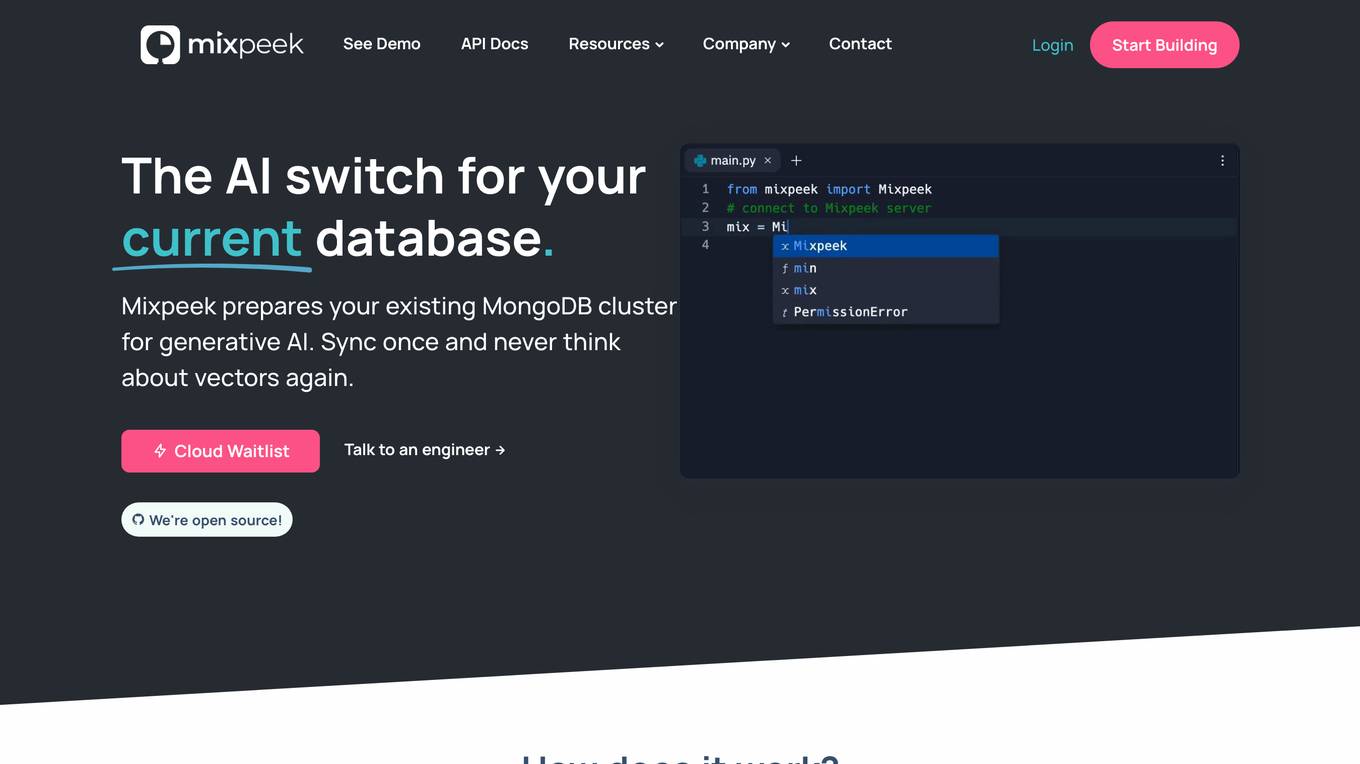
Mixpeek Solutions
Mixpeek Solutions offers a Multimodal Data Warehouse for Developers, providing a Developer-First API for AI-native Content Understanding. The platform allows users to search, monitor, classify, and cluster unstructured data like video, audio, images, and documents. Mixpeek Solutions offers a range of features including Unified Search, Automated Classification, Unsupervised Clustering, Feature Extractors for Every Data Type, and various specialized extraction models for different data types. The platform caters to a wide range of industries and provides seamless model upgrades, cross-model compatibility, A/B testing infrastructure, and simplified model management.
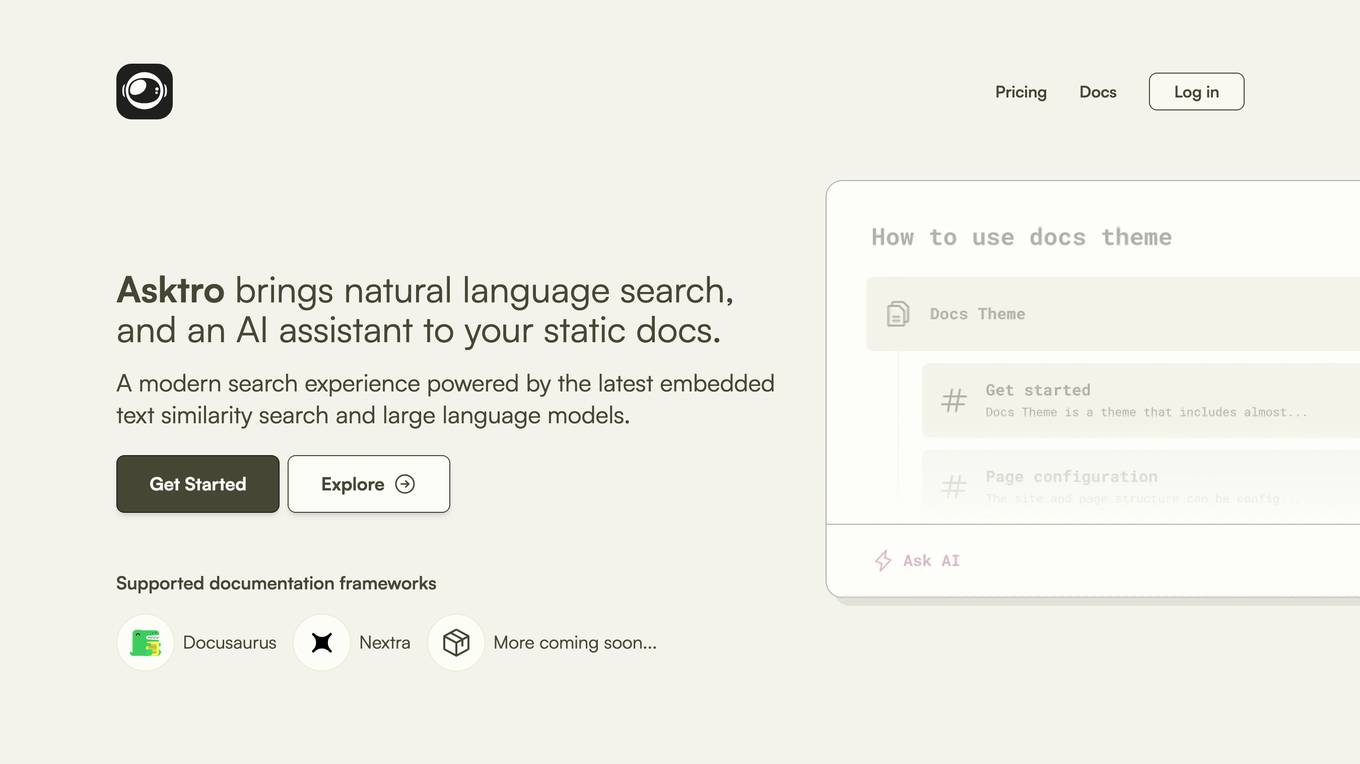
Asktro
Asktro is an AI tool that brings natural language search and an AI assistant to static documentation websites. It offers a modern search experience powered by embedded text similarity search and large language models. Asktro provides a ready-to-go search UI, plugin for data ingestion and indexing, documentation search, and an AI assistant for answering specific questions.

Ranked
Ranked is an affordable SEO service that offers white label solutions for businesses and agencies. They provide human-written blog content, managed optimization, genuine backlinks, and leading SEO software. Their services are fully managed and structured for intent and engagement. Ranked utilizes AI engines for analysis, research, and outreach to deliver data-driven work and improve in-house productivity. However, they do not use AI for writing content due to inconsistent indexing on Google.
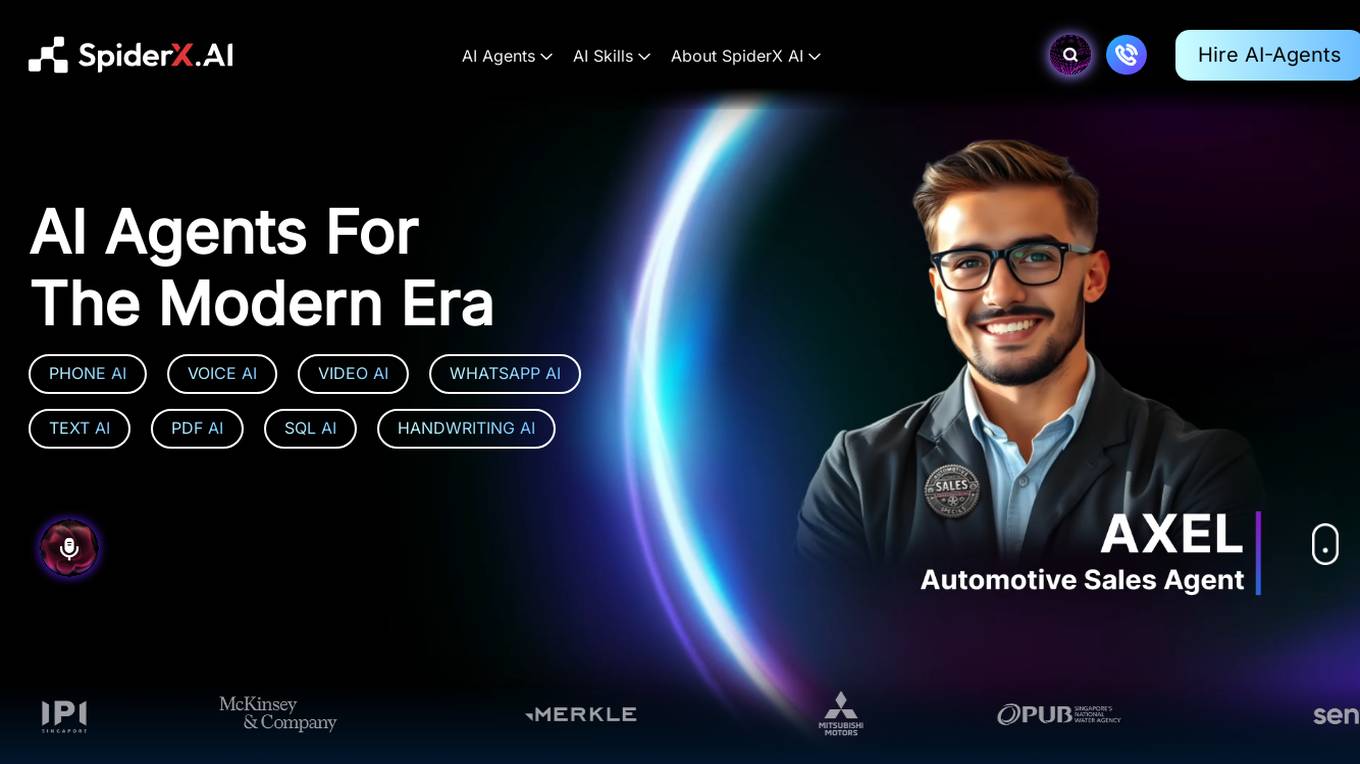
SpiderX AI
SpiderX AI is an advanced AI platform offering a range of AI agents for various industries such as recruitment, customer service, automotive sales, research, restaurant booking, and event management. The platform provides specialized AI solutions to streamline processes, enhance customer experiences, and optimize operations. With a focus on efficiency and precision, SpiderX AI's agents are designed to solve complex problems and deliver insights with unrivaled expertise.
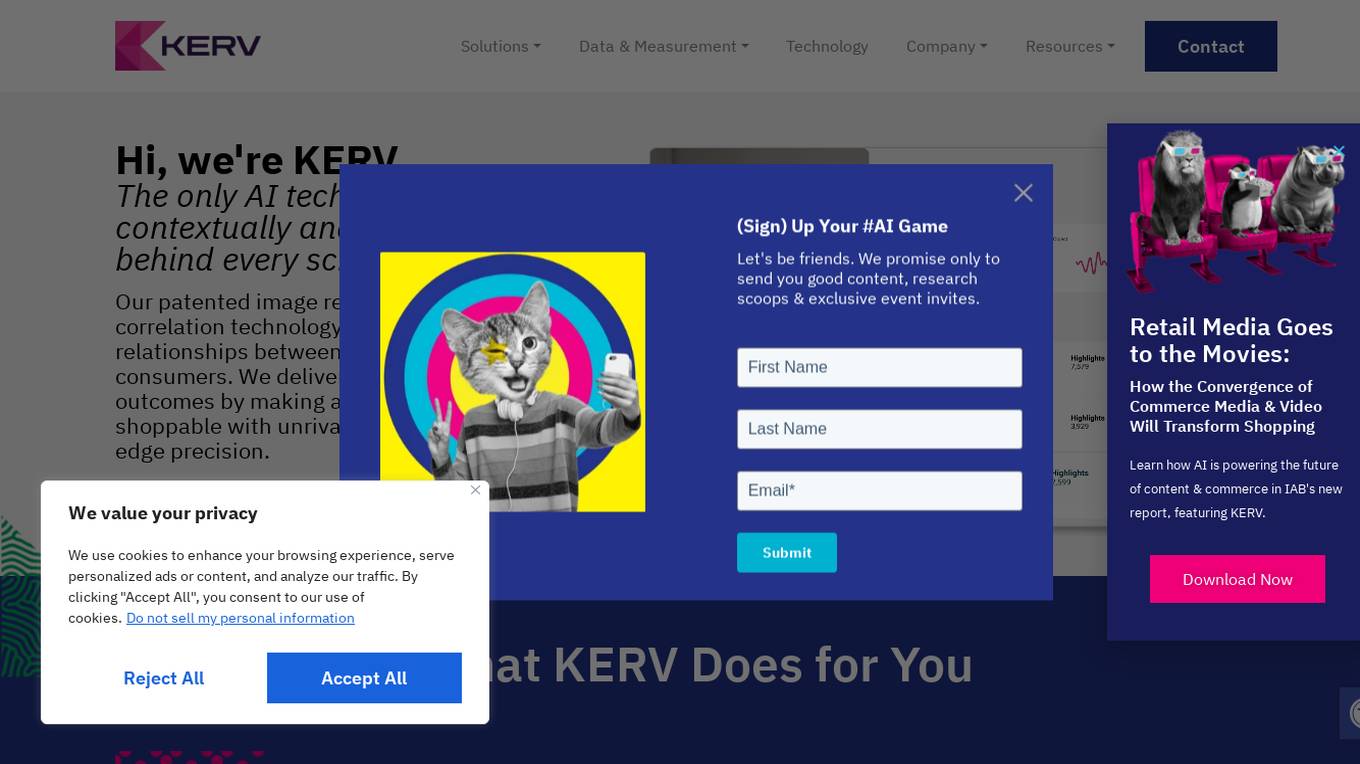
KERV Solutions
KERV is an AI-powered video and creative technology company that offers ad performance solutions, publisher revenue opportunities, in-show monetization solutions, and data and measurement services. Their patented image recognition and product correlation technology enable deeper relationships between publishers, brands, and consumers. KERV's AI technology makes any video explorable and shoppable with unrivaled speed and precision, delivering real business outcomes. They provide intelligent video solutions, active attention indexing, greater speed and precision, 1st party data insights, and brand safety measures.
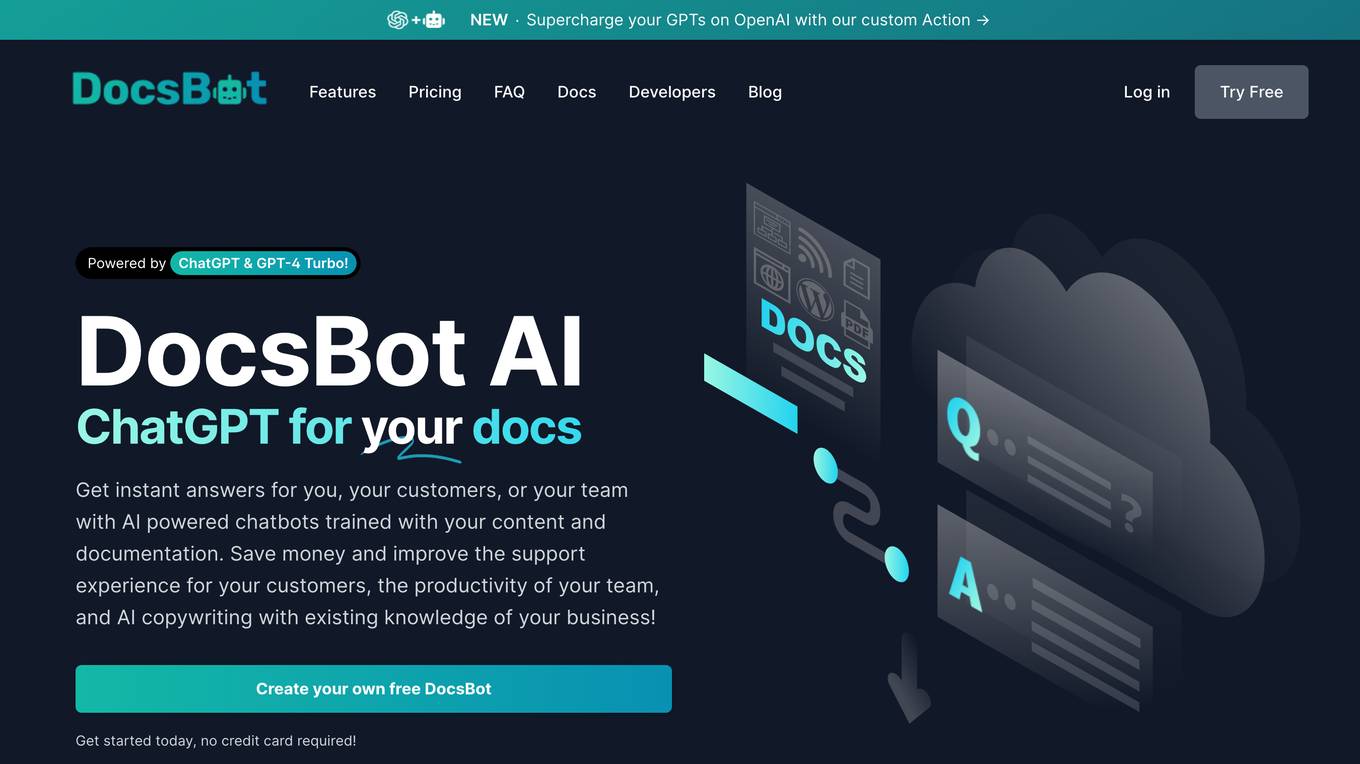
DocsBot AI
DocsBot AI is a powerful AI tool that allows users to create custom chatbots from their documentation. It enables users to get instant answers for customers, automate customer support, improve team productivity, and enhance AI copywriting. DocsBot offers features like Embeddable Widgets, Reply to Support Tickets, Question/Answer Bots, Internal Knowledge Bots, Custom Copywriting, and a Powerful API. The application has advantages such as saving time and money, improving customer support experience, increasing team productivity, providing detailed answers, and simplifying content creation. However, it also has disadvantages like potential language limitations, dependency on user-provided content, and the need for training the chatbots effectively.
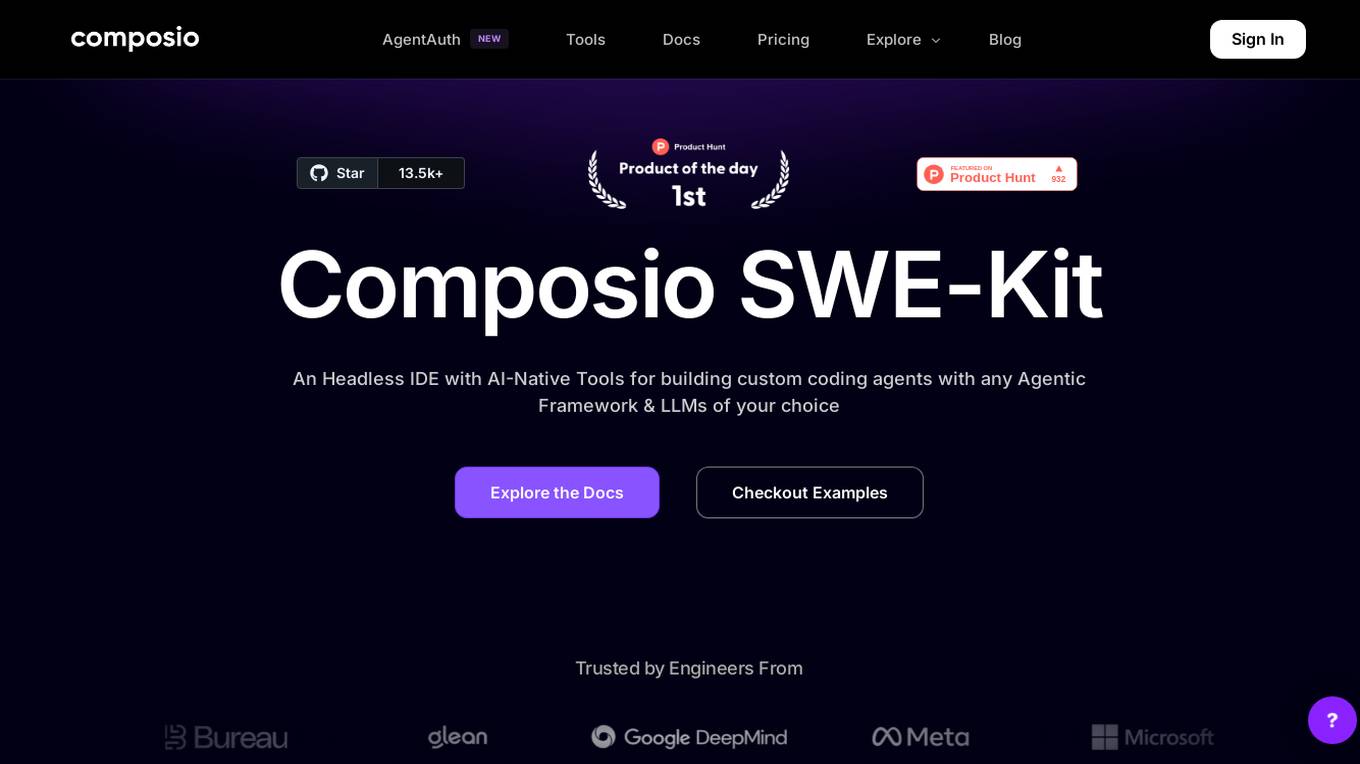
SWE Kit
SWE Kit is an open-source headless IDE designed for building custom coding agents with state-of-the-art performance. It offers AI-native tools to streamline the coding review process, enhance code quality, and optimize development efficiency. The application supports various agentic frameworks and LLM inference providers, providing a flexible runtime environment for seamless codebase interaction. With features like code analysis, code indexing, and third-party service integrations, SWE Kit empowers developers to create and run coding agents effortlessly.

Desktop Docs
Desktop Docs is an all-in-one platform designed to simplify file management by allowing users to browse, edit, and export media files. The application leverages AI technology to automate tasks such as searching for files based on their content, indexing files using machine learning models, and providing a seamless editing experience. Desktop Docs aims to streamline the creative process by offering a centralized solution for managing digital media.
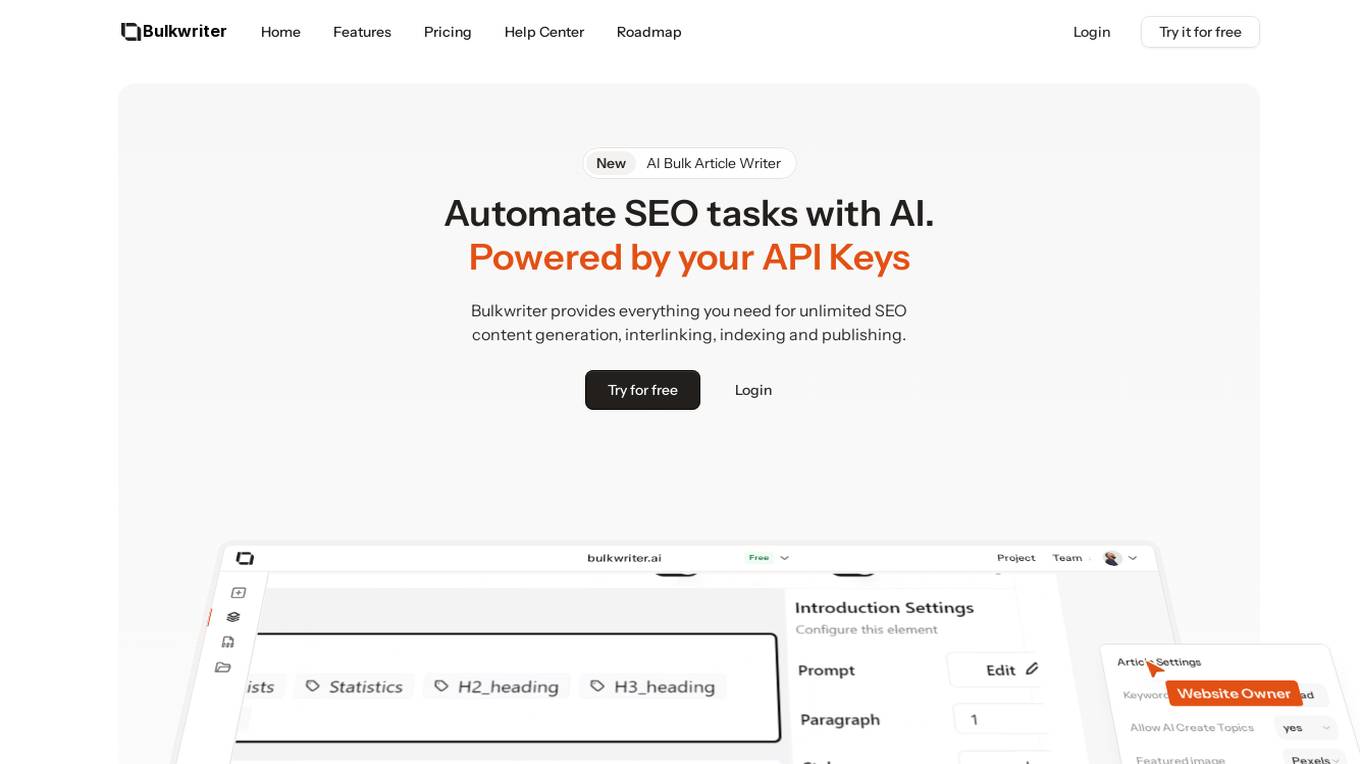
Bulk AI Article Writer
Bulk AI Article Writer is an advanced tool designed to assist users in generating multiple articles efficiently. It offers features such as an interlinking tool, indexing tool, and the ability to post content from WordPress to social media platforms seamlessly. The tool utilizes artificial intelligence to streamline the article writing process, making it ideal for content creators, bloggers, and digital marketers looking to save time and increase productivity.

Bloomfire
Bloomfire is an AI-based knowledge management software system that revolutionizes knowledge management within organizations. It offers AI-powered features such as enterprise search, authoring tools, data security, and collective knowledge engine. The platform enhances team collaboration, boosts efficiency, and empowers users to access and share knowledge seamlessly. Bloomfire's comprehensive solutions cater to various industries and team roles, providing valuable insights, customer support, and efficient knowledge sharing. With generative AI capabilities and deep indexing, Bloomfire ensures data readiness for AI initiatives, enabling users to make data-driven decisions and streamline processes.
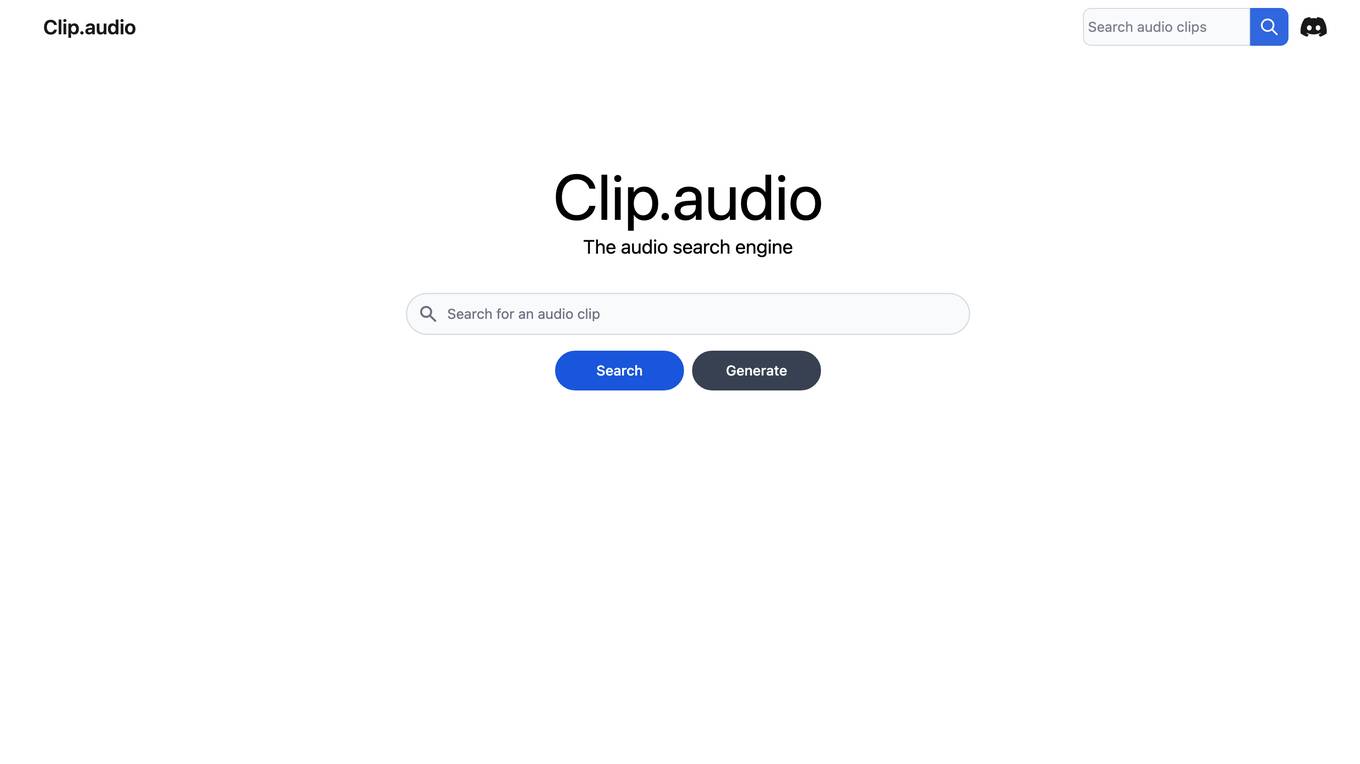
Clip.audio
Clip.audio is an AI-powered audio search engine that allows users to search for and discover audio clips from a variety of sources, including podcasts, music, and sound effects. The platform uses advanced machine learning algorithms to analyze and index audio content, making it easy for users to find the specific audio clips they are looking for.
1 - Open Source AI Tools
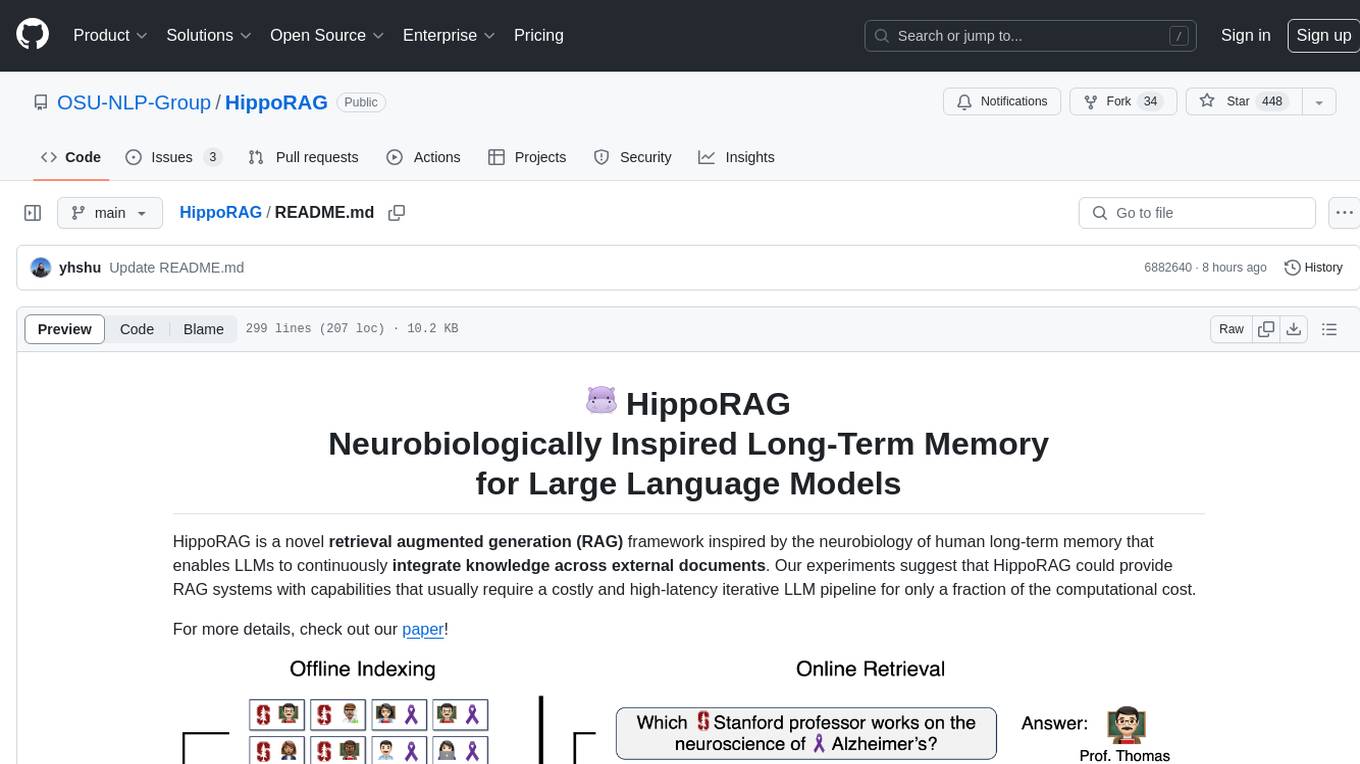
HippoRAG
HippoRAG is a novel retrieval augmented generation (RAG) framework inspired by the neurobiology of human long-term memory that enables Large Language Models (LLMs) to continuously integrate knowledge across external documents. It provides RAG systems with capabilities that usually require a costly and high-latency iterative LLM pipeline for only a fraction of the computational cost. The tool facilitates setting up retrieval corpus, indexing, and retrieval processes for LLMs, offering flexibility in choosing different online LLM APIs or offline LLM deployments through LangChain integration. Users can run retrieval on pre-defined queries or integrate directly with the HippoRAG API. The tool also supports reproducibility of experiments and provides data, baselines, and hyperparameter tuning scripts for research purposes.